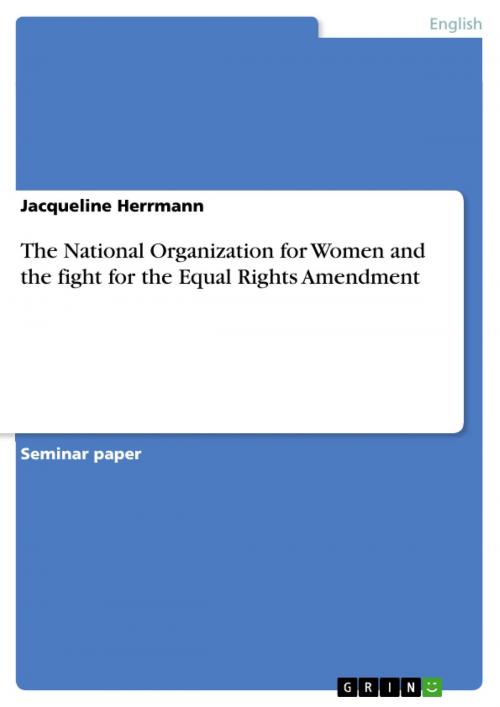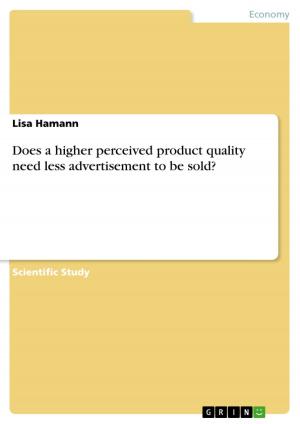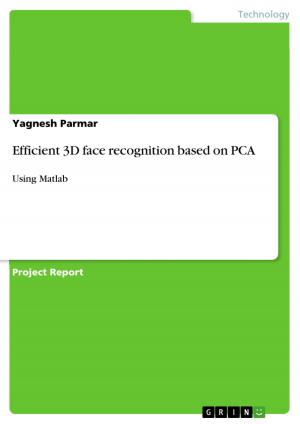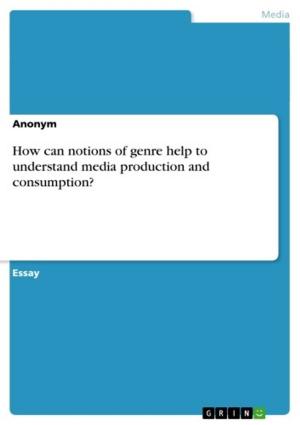The National Organization for Women and the fight for the Equal Rights Amendment
Nonfiction, Entertainment, Drama, Anthologies| Author: | Jacqueline Herrmann | ISBN: | 9783638027496 |
| Publisher: | GRIN Publishing | Publication: | March 27, 2008 |
| Imprint: | GRIN Publishing | Language: | English |
| Author: | Jacqueline Herrmann |
| ISBN: | 9783638027496 |
| Publisher: | GRIN Publishing |
| Publication: | March 27, 2008 |
| Imprint: | GRIN Publishing |
| Language: | English |
Seminar paper from the year 2004 in the subject American Studies - Culture and Applied Geography, grade: 1-, University of Frankfurt (Main) (Zentrum für Nordamerikaforschung), course: U.S. History and Society: the 1950s and 1960s, 16 entries in the bibliography, language: English, abstract: In the following essay I will try to examine the role and importance of the National Organization for Women in the Women's Liberation Movement as well as their long-running fight for the Equal Rights Amendment. Terms such as Great Society, Civil Rights Movement, Women's Liberation, Youth Counterculture, New Left, Rock ´n´ Roll, Woodstock, the landing on the moon, etc. characterize the turbulent Sixties. The Sixties are often described as the 'decade of discontent' but also as the 'decade of peace, love and harmony'. A major aspect of the 1960s was the revival of the feminist movement. In 1966 the National Organization for Women was founded, which grew to the largest organization of feminist activist in the United States and had a big influence on the development of the status of women. In the following essay I will try to examine the role and importance of the National Organization for Women in the Women's Liberation Movement as well as their long-running fight for the Equal Rights Amendment. In Part I, I will deal with the National Organization for Women in general. I will take a look at the history of the organization and at their goals and actions. Their long-winded fight for the so-called Equal Rights Amendment will be examined in Part II. I will try to explore the history behind the ERA and then primarily focus on the ratification process in the second half of the twentieth century. In the conclusion I will finally try to summarize the most important results. The new feminist movement of the 1960s was split into two types of feminist groups: a formal and an informal branch. The formal branch included the National Organization for Women (NOW), the Women's Equity Action League (WEAL) as well as the National Women's Political Caucus (NWPC) whereas the informal branch included so called consciousness-raising groups. The latter tried to attack sexism and discrimination in everyday life. The formal branch worked for changes in legislation and tried to enforce equal rights laws, '[...] such as the Equal Pay Act of 1963, Title VII of the Civil Rights Act of 1964 banning sex discrimination, and Title IX of the Higher Education Acts of 1969 and 1972, which prohibited sex discrimination in such matters as school sports programs.' (Giele: 1995, S. 169) The National Organization for Woman (NOW) was founded on June 30, 1966 in Washington, D.C. by reformers such as union activists, members of state commissions on the status of women or professional women.
Seminar paper from the year 2004 in the subject American Studies - Culture and Applied Geography, grade: 1-, University of Frankfurt (Main) (Zentrum für Nordamerikaforschung), course: U.S. History and Society: the 1950s and 1960s, 16 entries in the bibliography, language: English, abstract: In the following essay I will try to examine the role and importance of the National Organization for Women in the Women's Liberation Movement as well as their long-running fight for the Equal Rights Amendment. Terms such as Great Society, Civil Rights Movement, Women's Liberation, Youth Counterculture, New Left, Rock ´n´ Roll, Woodstock, the landing on the moon, etc. characterize the turbulent Sixties. The Sixties are often described as the 'decade of discontent' but also as the 'decade of peace, love and harmony'. A major aspect of the 1960s was the revival of the feminist movement. In 1966 the National Organization for Women was founded, which grew to the largest organization of feminist activist in the United States and had a big influence on the development of the status of women. In the following essay I will try to examine the role and importance of the National Organization for Women in the Women's Liberation Movement as well as their long-running fight for the Equal Rights Amendment. In Part I, I will deal with the National Organization for Women in general. I will take a look at the history of the organization and at their goals and actions. Their long-winded fight for the so-called Equal Rights Amendment will be examined in Part II. I will try to explore the history behind the ERA and then primarily focus on the ratification process in the second half of the twentieth century. In the conclusion I will finally try to summarize the most important results. The new feminist movement of the 1960s was split into two types of feminist groups: a formal and an informal branch. The formal branch included the National Organization for Women (NOW), the Women's Equity Action League (WEAL) as well as the National Women's Political Caucus (NWPC) whereas the informal branch included so called consciousness-raising groups. The latter tried to attack sexism and discrimination in everyday life. The formal branch worked for changes in legislation and tried to enforce equal rights laws, '[...] such as the Equal Pay Act of 1963, Title VII of the Civil Rights Act of 1964 banning sex discrimination, and Title IX of the Higher Education Acts of 1969 and 1972, which prohibited sex discrimination in such matters as school sports programs.' (Giele: 1995, S. 169) The National Organization for Woman (NOW) was founded on June 30, 1966 in Washington, D.C. by reformers such as union activists, members of state commissions on the status of women or professional women.















